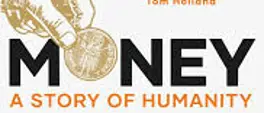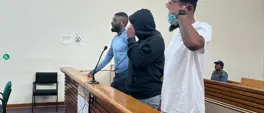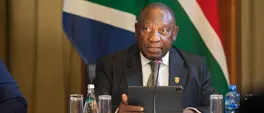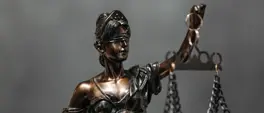Jamil F. Khan | Pride is a protest for human rights and we should all partake in it
Jamil F. Khan
10 June 2025 | 11:45The reversals of protections for queer and trans people, in the very USA where some of the most tireless queer activism has taken place, reminds us, unfortunately, that human rights cannot be taken for granted.
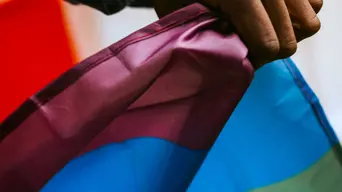
Picture: Pexels.com
On 13 October 1990, the first queer pride parade in Africa was held in Johannesburg. The socio-political landscape of South Africa was in flux, with as many challenges as possibilities on the horizon of a new South Africa.
The release of Nelson Mandela from prison a few months earlier signalled major possibilities for a country free from the deeply oppressive and dehumanising social contract of apartheid.
Though some might have had ideas of heteronormative future, the leadership of the Gay and Lesbian Organisation of the Witwatersrand (GLOW) rose the bar on human rights and equality, to advocate for queer rights to be enshrined in our constitution.
This fight was hard-won, not only as this advocacy was opposed by a society imbued with apartheid values, but those leading the negotiations for democracy.
This advocacy reminds us of two realities: when fighting for our human rights we must be prepared to fight against even those who are fighting alongside us, and more importantly, Pride has always been a protest against queer oppression first.
Just over 20 years prior, the Stonewall riots erupted in New York City on 28 June 1969. Bars where queer people were known to congregate were raided by police. Persecuted for their existence, queer people rose up and fought back against police brutality and state-sanctioned homophobia.
What we know as pride parades today, have their origins in violent retaliation against violent oppression by the state. Parades since, have been about resisting the shame and invisibility imposed on queer people and sustained activism for full realisation of the human rights of queer people, regardless of what has been said about them.
Protest, resistance and subversion are embedded in the traditions of queer expression across the world. Even as we enjoy the protection of the constitution as queer people, we see how retaining these protections is far from settled.
The reversals of protections for queer and trans people, in the very USA where some of the most tireless queer activism has taken place, reminds us, unfortunately, that human rights cannot be taken for granted.
This year, particularly, the history of protest around queer rights that have still largely not been realised is instructive in demanding of us to protest oppressive power wherever it rears itself.
The protests mentioned above also reveal an intersectional history of protest and struggle. In both time periods, the 1960s and 1990s, racial division fractured queer resistance putting mostly Black and brown people, especially lesbian and trans women at the forefront of calls for equality.
Where white gay men have historically unduly represented the experience of queer life, resistance by Black queer people in South Africa and elsewhere have demanded substantive equality where all human rights are respected. Even today, these contestations and tensions persist within the inequality we still deal with and continue to challenge.
Generations of activists have passed and older generations are already interacting with newer generations of activists to shape future queer rights landscapes. This is relentless work in which one can never assume that a promised land has been arrived at. Once achieved, constitutional gains must be nurtured and protected from constant threats that seek to reverse them.
Without suggesting that protest is an anomaly, it is evident that the world is currently in a hyper-visible moment of shared protest against injustice. In the age of the internet, clear records of injustice are spread across the world in a matter of minutes.
Though some still make an active choice to endorse oppression, many people can no longer deny the horror of what they see on their social media feeds, nor can they ignore the brutality of state power trying to crush dissent.
Many are joining in physical protests, supporting the protests of those elsewhere, and making the connections between various struggles for freedom, thereby building transcontinental solidarity.
We are seeing in real time just how easily our civil liberties can be struck down and how permissive global leaders are of unchecked violence.
As we reflect on various protests for justice currently taking place, the histories of protest within queer histories across the world, offer us gifts. The gift of persistence in the face of brutality, because until today queer people have not stopped fighting injustice.
The gift of refusal, because while we have made strides in some areas we refuse to settle for less than full equality, hence the continued struggle. A gift of diversity, because when queer activism denounces inequality in all forms, everyone benefits.
A gift of community, because for many queer people, support systems are born out of meeting on the frontlines of confronting injustice. None of these spaces of resistance are neat or uncontested, and while internal struggles may be seen to weaken movements, the entire point of protest is not to let anything slide in pursuit of pride and dignity.
This year marks the tradition of queer protest in ways that speak to the importance of global solidarity. While we struggle for rights along various axes of humanity, queer histories provide numerous roadmaps for organising and movement building that can inform this moment of protest.
Though queerness has been constructed as a threat to society, it reveals itself to have been an unpopular hero shaping numerous human rights cultures which are currently at risk. With the clear message that none of us are free until all of us are free, queer activism reminds us that efforts isolated into hierarchies of importance, and by implication, humanity, weaken our fights for justice.
Every year deliberately obtuse views circulate about the necessity for queer pride parades and the celebration of queer pride at all. Though the optics of celebration have often obscured the political heart of Pride, it remains tethered to its revolutionary origins as resistance to state violence and suppression.
This very same violence we see mobilised against Palestinians in Gaza, pro-Palestine protesters in the West, financially excluded students in South Africa, indigenous Asian people in Russia and Muslims in India, to name only a few.
This year, let it be remembered, that Pride is a protest for human rights and we should all partake in it.
Jamil F. Khan is an author, doctoral critical diversity scholar, and research fellow at the Johannesburg Institute for Advanced Study.
Get the whole picture 💡
Take a look at the topic timeline for all related articles.
